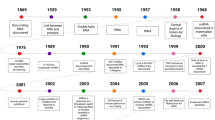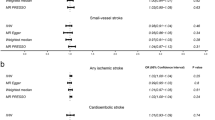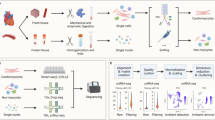Abstract
Stroke is the leading cause of death in China. Previous studies have demonstrated that long noncoding RNAs play important roles in ischemic stroke (IS). This study aimed to investigate long noncoding RNA H19 (lncRNA H19) expression in IS cases and the association between lncRNA H19 variants and IS risk and IS-related risk factors. A total of 550 IS cases and 550 controls were recruited for this study. LncRNA H19 expression was detected using quantitative real-time polymerase chain reaction. Genotyping was conducted by the Sequenom MassARRAY technology. LncRNA H19 level in peripheral blood of IS cases was significantly upregulated compared with healthy controls (P = 0.046). No significant association was observed between lncRNA H19 rs217727 and rs4929984 polymorphisms with IS risk in all genetic models, and rs217727-rs4929984 haplotypes are not associated with IS susceptibility. Further meta-analysis also implied that the rs217727 and rs4929984 polymorphisms were not associated with IS in Chinese population. However, rs4929984 is significantly associated with the diastolic blood pressure level of IS patients (additive model: Padj = 0.007; dominant model: Padj = 0.013), whereas rs217727 is associated with international normalized ratio (additive model: Padj = 0.019; recessive model: Padj = 0.004), prothrombin time activity level (additive model: Padj = 0.026; recessive model: Padj = 0.004), and homocysteine level (recessive model: Padj = 0.048) in patients with IS. Our findings suggest that lncRNA H19 level may affect the occurrence of IS, and lncRNA H19 variants may influence blood pressure, coagulation function, and homocysteine metabolism of patients with IS in the southern Chinese Han population.

Similar content being viewed by others
References
Adkins RM, Somes G, Morrison JC, Hill JB, Watson EM, Magann EF, Krushkal J (2010) Association of birth weight with polymorphisms in the IGF2, H19, and IGF2R genes. Pediatr Res 68:429–434. https://doi.org/10.1203/PDR.0b013e3181f1ca99
Amouyel P (2012) From genes to stroke subtypes. Lancet Neurol 11:931–933. https://doi.org/10.1016/S1474-4422(12)70235-1
Bao MH, Szeto V, Yang BB, Zhu SZ, Sun HS, Feng ZP (2018) Long non-coding RNAs in ischemic stroke. Cell Death Dis 9:281. https://doi.org/10.1038/s41419-018-0282-x
Chauhan G, Debette S (2016) Genetic risk factors for ischemic and hemorrhagic stroke. Curr Cardiol Rep 18:124. https://doi.org/10.1007/s11886-016-0804-z
Chen HH, Almontashiri NA, Antoine D, Stewart AF (2014) Functional genomics of the 9p21.3 locus for atherosclerosis: clarity or confusion? Curr Cardiol Rep 16:502. https://doi.org/10.1007/s11886-014-0502-7
Chen Z, Jiang B, Ru X, Sun H, Sun D, Liu X, Li Y, Li D, Guo X, Wang W (2017) Mortality of stroke and its subtypes in China: results from a Nationwide population-based survey. Neuroepidemiology 48:95–102. https://doi.org/10.1159/000477494
Cipolla GA, de Oliveira J, Salviano-Silva A, Lobo-Alves S, Lemos D, Oliveira L, Jucoski T, Mathias C, Pedroso G, Zambalde E, Gradia D (2018) Long non-coding RNAs in multifactorial diseases: another layer of complexity Non-Coding RNA 4. https://doi.org/10.3390/ncrna4020013
Cotlarciuc I, Malik R, Holliday EG, Ahmadi KR, Paré G, Psaty BM, Fornage M, Hasan N, Rinne PE, Ikram MA, Markus HS, Rosand J, Mitchell BD, Kittner SJ, Meschia JF, van Meurs J, Uitterlinden AG, Worrall BB, Dichgans M, Sharma P, METASTROKE and the International Stroke Genetics Consortium (2014) Effect of genetic variants associated with plasma homocysteine levels on stroke risk. Stroke 45:1920–1924. https://doi.org/10.1161/STROKEAHA.114.005208
Cunnington MS, Santibanez Koref M, Mayosi BM, Burn J, Keavney B (2010) Chromosome 9p21 SNPs associated with multiple disease phenotypes correlate with ANRIL expression. PLoS Genet 6:e1000899. https://doi.org/10.1371/journal.pgen.1000899
Feigin VL, Krishnamurthi RV, Parmar P, Norrving B, Mensah GA, Bennett DA, Barker-Collo S, Moran AE, Sacco RL, Truelsen T, Davis S, Pandian JD, Naghavi M, Forouzanfar MH, Nguyen G, Johnson CO, Vos T, Meretoja A, Murray CJ, Roth GA, GBD 2013 Writing Group, GBD 2013 Stroke Panel Experts Group (2015) Update on the global burden of ischemic and hemorrhagic stroke in 1990–2013: the GBD 2013 study. Neuroepidemiology 45:161–176. https://doi.org/10.1159/000441085
Feng AF, Liu ZH, Zhou SL, Zhao SY, Zhu YX, Wang HX (2017) Effects of AMPD1 gene C34T polymorphism on cardiac index, blood pressure and prognosis in patients with cardiovascular diseases: a meta-analysis. BMC Cardiovasc Disord 17:174. https://doi.org/10.1186/s12872-017-0608-0
Gabory A, Jammes H, Dandolo L (2010) The H19 locus: role of an imprinted non-coding RNA in growth and development. BioEssays 32:473–480. https://doi.org/10.1002/bies.200900170
Gao W, Zhu M, Wang H, Zhao S, Zhao D, Yang Y, Wang ZM, Wang F, Yang ZJ, Lu X, Wang LS (2015) Association of polymorphisms in long non-coding RNA H19 with coronary artery disease risk in a Chinese population. Mutat Res 772:15–22. https://doi.org/10.1016/j.mrfmmm.2014.12.009
Guo QY, Wang H, Wang Y (2017) LncRNA H19 polymorphisms associated with the risk of OSCC in Chinese population. Eur Rev Med Pharmacol Sci 21:3770–3774
Hainsworth AH, Yeo NE, Weekman EM, Wilcock DM (2016) Homocysteine, hyperhomocysteinemia and vascular contributions to cognitive impairment and dementia (VCID). Biochim Biophys Acta 1862:1008–1017. https://doi.org/10.1016/j.bbadis.2015.11.015
Han DK, Khaing ZZ, Pollock RA, Haudenschild CC, Liau G (1996) H19, a marker of developmental transition, is reexpressed in human atherosclerotic plaques and is regulated by the insulin family of growth factors in cultured rabbit smooth muscle cells. J Clin Invest 97:1276–1285. https://doi.org/10.1172/JCI118543
Hewage AS, Jayanthiny P, Tennekoon KH, Kumarasiri JM, De SWAP, Karunanayake EH (2015) H19 rs217727 genotype and IGF-1/intron −2 dinucleotide CT repeat polymorphism are independently associated with birth weight. Endocrine 48:1010–1012. https://doi.org/10.1007/s12020-014-0402-z
Hinds DA, Buil A, Ziemek D, Martinez-Perez A, Malik R, Folkersen L, Germain M, Mälarstig A, Brown A, Soria JM, Dichgans M, Bing N, Franco-Cereceda A, Souto JC, Dermitzakis ET, Hamsten A, Worrall BB, Tung JY, METASTROKE Consortium, INVENT Consortium, Sabater-Lleal M (2016) Genome-wide association analysis of self-reported events in 6135 individuals and 252 827 controls identifies 8 loci associated with thrombosis. Hum Mol Genet 25:1867–1874. https://doi.org/10.1093/hmg/ddw037
International Consortium for Blood Pressure Genome-Wide Association S et al (2011) Genetic variants in novel pathways influence blood pressure and cardiovascular disease risk. Nature 478:103–109. https://doi.org/10.1038/nature10405
Iyer MK, Niknafs YS, Malik R, Singhal U, Sahu A, Hosono Y, Barrette TR, Prensner JR, Evans JR, Zhao S, Poliakov A, Cao X, Dhanasekaran SM, Wu YM, Robinson DR, Beer DG, Feng FY, Iyer HK, Chinnaiyan AM (2015) The landscape of long noncoding RNAs in the human transcriptome. Nat Genet 47:199–208. https://doi.org/10.1038/ng.3192
Kearney PM, Whelton M, Reynolds K, Muntner P, Whelton PK, He J (2005) Global burden of hypertension: analysis of worldwide data. Lancet 365:217–223. https://doi.org/10.1016/S0140-6736(05)17741-1
Kim DK, Zhang L, Dzau VJ, Pratt RE (1994) H19, a developmentally regulated gene, is reexpressed in rat vascular smooth muscle cells after injury. J Clin Invest 93:355–360. https://doi.org/10.1172/JCI116967
Kim DS, Smith JA, Bielak LF, Wu CY, Sun YV, Sheedy PF, Turner ST, Peyser PA, Kardia SLR (2014) The relationship between diastolic blood pressure and coronary artery calcification is dependent on single nucleotide polymorphisms on chromosome 9p21.3. BMC Med Genet 15:89. https://doi.org/10.1186/s12881-014-0089-2
Liu K et al (2013) [Association study between PDE4D gene polymorphism and ischemic stroke] Beijing da xue xue bao Yi xue ban = Journal of Peking University Health Sciences 45:359–363
Luo M, Li Z, Wang W, Zeng Y, Liu Z, Qiu J (2013) Long non-coding RNA H19 increases bladder cancer metastasis by associating with EZH2 and inhibiting E-cadherin expression. Cancer Lett 333:213–221. https://doi.org/10.1016/j.canlet.2013.01.033
Matouk IJ, Mezan S, Mizrahi A, Ohana P, Abu-lail R, Fellig Y, deGroot N, Galun E, Hochberg A (2010) The oncofetal H19 RNA connection: hypoxia, p53 and cancer. Biochim Biophys Acta 1803:443–451. https://doi.org/10.1016/j.bbamcr.2010.01.010
Mehta SL, Kim T, Vemuganti R (2015) Long noncoding RNA FosDT promotes ischemic brain injury by interacting with REST-associated chromatin-modifying proteins. J Neurosci 35:16443–16449. https://doi.org/10.1523/JNEUROSCI.2943-15.2015
Mozaffarian D et al (2016) Heart disease and stroke statistics-2016 update: a report from the American Heart Association. Circulation 133:e38–360. https://doi.org/10.1161/CIR.0000000000000350
Ovbiagele B, Goldstein LB, Higashida RT, Howard VJ, Johnston SC, Khavjou OA, Lackland DT, Lichtman JH, Mohl S, Sacco RL, Saver JL, Trogdon JG, on behalf of the American Heart Association Advocacy Coordinating Committee and Stroke Council (2013) Forecasting the future of stroke in the United States: a policy statement from the American Heart Association and American Stroke Association. Stroke 44:2361–2375. https://doi.org/10.1161/STR.0b013e31829734f2
Pan JX (2017) LncRNA H19 promotes atherosclerosis by regulating MAPK and NF-kB signaling pathway. Eur Rev Med Pharmacol Sci 21:322–328
Puyal J, Clarke PG (2009) Targeting autophagy to prevent neonatal stroke damage. Autophagy 5:1060–1061
Rashid F, Shah A, Shan G (2016) Long non-coding RNAs in the cytoplasm. Genomics Proteomics Bioinformatics 14:73–80. https://doi.org/10.1016/j.gpb.2016.03.005
Roy-O'Reilly M, McCullough LD (2014) Sex differences in stroke: the contribution of coagulation. Exp Neurol 259:16–27. https://doi.org/10.1016/j.expneurol.2014.02.011
Simion V, Haemmig S, Feinberg MW (2018) LncRNAs in vascular biology and disease. Vascul Pharmacol. https://doi.org/10.1016/j.vph.2018.01.003
Soudyab M, Iranpour M, Ghafouri-Fard S (2016) The role of long non-coding RNAs in breast cancer. Arch Iran Med 19:508–517
Sun W, Yang Y, Xu C, Xie Y, Guo J (2016) Roles of long noncoding RNAs in gastric cancer and their clinical applications. J Cancer Res Clin Oncol 142:2231–2237. https://doi.org/10.1007/s00432-016-2183-7
Sun W, Yang Y, Xu C, Guo J (2017) Regulatory mechanisms of long noncoding RNAs on gene expression in cancers. Cancer Genet 216-217:105–110. https://doi.org/10.1016/j.cancergen.2017.06.003
Tragante V, Barnes MR, Ganesh SK, Lanktree MB, Guo W, Franceschini N, Smith EN, Johnson T, Holmes MV, Padmanabhan S, Karczewski KJ, Almoguera B, Barnard J, Baumert J, Chang YPC, Elbers CC, Farrall M, Fischer ME, Gaunt TR, Gho JMIH, Gieger C, Goel A, Gong Y, Isaacs A, Kleber ME, Leach IM, McDonough CW, Meijs MFL, Melander O, Nelson CP, Nolte IM, Pankratz N, Price TS, Shaffer J, Shah S, Tomaszewski M, van der Most PJ, van Iperen EPA, Vonk JM, Witkowska K, Wong COL, Zhang L, Beitelshees AL, Berenson GS, Bhatt DL, Brown M, Burt A, Cooper-DeHoff RM, Connell JM, Cruickshanks KJ, Curtis SP, Davey-Smith G, Delles C, Gansevoort RT, Guo X, Haiqing S, Hastie CE, Hofker MH, Hovingh GK, Kim DS, Kirkland SA, Klein BE, Klein R, Li YR, Maiwald S, Newton-Cheh C, O’Brien ET, Onland-Moret NC, Palmas W, Parsa A, Penninx BW, Pettinger M, Vasan RS, Ranchalis JE, M Ridker P, Rose LM, Sever P, Shimbo D, Steele L, Stolk RP, Thorand B, Trip MD, van Duijn CM, Verschuren WM, Wijmenga C, Wyatt S, Young JH, Zwinderman AH, Bezzina CR, Boerwinkle E, Casas JP, Caulfield MJ, Chakravarti A, Chasman DI, Davidson KW, Doevendans PA, Dominiczak AF, FitzGerald GA, Gums JG, Fornage M, Hakonarson H, Halder I, Hillege HL, Illig T, Jarvik GP, Johnson JA, Kastelein JJP, Koenig W, Kumari M, März W, Murray SS, O’Connell JR, Oldehinkel AJ, Pankow JS, Rader DJ, Redline S, Reilly MP, Schadt EE, Kottke-Marchant K, Snieder H, Snyder M, Stanton AV, Tobin MD, Uitterlinden AG, van der Harst P, van der Schouw YT, Samani NJ, Watkins H, Johnson AD, Reiner AP, Zhu X, de Bakker PIW, Levy D, Asselbergs FW, Munroe PB, Keating BJ (2014) Gene-centric meta-analysis in 87,736 individuals of European ancestry identifies multiple blood-pressure-related loci. Am J Hum Genet 94:349–360. https://doi.org/10.1016/j.ajhg.2013.12.016
Vazquez-Garza E, Jerjes-Sanchez C, Navarrete A, Joya-Harrison J, Rodriguez D (2017) Venous thromboembolism: thrombosis, inflammation, and immunothrombosis for clinicians. J Thromb Thrombolysis 44:377–385. https://doi.org/10.1007/s11239-017-1528-7
Verdecchia P, Reboldi G, Angeli F, Trimarco B, Mancia G, Pogue J, Gao P, Sleight P, Teo K, Yusuf S (2015) Systolic and diastolic blood pressure changes in relation with myocardial infarction and stroke in patients with coronary artery disease. Hypertension 65:108–114. https://doi.org/10.1161/HYPERTENSIONAHA.114.04310
Wang CY, Chen ZW, Zhang T, Liu J, Chen SH, Liu SY, Han LY, Hui ZH, Chen YM (2014) Elevated plasma homocysteine level is associated with ischemic stroke in Chinese hypertensive patients. Eur J Intern Med 25:538–544. https://doi.org/10.1016/j.ejim.2014.04.011
Wang J, Cao B, Han D, Sun M, Feng J (2017a) Long non-coding RNA H19 induces cerebral ischemia reperfusion injury via activation of autophagy. Aging Dis 8:71–84. https://doi.org/10.14336/AD.2016.0530
Wang J, Zhao H, Fan Z, Li G, Ma Q, Tao Z, Wang R, Feng J, Luo Y (2017b) Long noncoding RNA H19 promotes neuroinflammation in ischemic stroke by driving histone deacetylase 1-dependent M1 microglial polarization. Stroke 48:2211–2221. https://doi.org/10.1161/STROKEAHA.117.017387
Wilkin F, Paquette J, Ledru E, Hamelin C, Pollak M, Deal CL (2000) H19 sense and antisense transgenes modify insulin-like growth factor-II mRNA levels. Eur J Biochem 267:4020–4027
Williams FM, Carter AM, Hysi PG, Surdulescu G, Hodgkiss D, Soranzo N, Traylor M, Bevan S, Dichgans M, Rothwell PM, Sudlow C, Farrall M, Silander K, Kaunisto M, Wagner P, Saarela O, Kuulasmaa K, Virtamo J, Salomaa V, Amouyel P, Arveiler D, Ferrieres J, Wiklund PG, Ikram MA, Hofman A, Boncoraglio GB, Parati EA, Helgadottir A, Gretarsdottir S, Thorsteinsdottir U, Thorleifsson G, Stefansson K, Seshadri S, DeStefano A, Gschwendtner A, Psaty B, Longstreth W, Mitchell BD, Cheng YC, Clarke R, Ferrario M, Bis JC, Levi C, Attia J, Holliday EG, Scott RJ, Fornage M, Sharma P, Furie KL, Rosand J, Nalls M, Meschia J, Mosely TH, Evans A, Palotie A, Markus HS, Grant PJ, Spector TD, EuroCLOT Investigators, Wellcome Trust Case Control Consortium 2, MOnica Risk, Genetics, Archiving and Monograph, MetaStroke, International Stroke Genetics Consortium (2013) Ischemic stroke is associated with the ABO locus: the EuroCLOT study. Ann Neurol 73:16–31. https://doi.org/10.1002/ana.23838
Yang C, Tang R, Ma X, Wang Y, Luo D, Xu Z, Zhu Y, Yang L (2015) Tag SNPs in long non-coding RNA H19 contribute to susceptibility to gastric cancer in the Chinese Han population. Oncotarget 6:15311–15320. https://doi.org/10.18632/oncotarget.3840
Yang J, Gu L, Guo X, Huang J, Chen Z, Huang G, Kang Y, Zhang X, Long J, Su L (2018) LncRNA ANRIL expression and ANRIL gene polymorphisms contribute to the risk of ischemic stroke in the Chinese Han population. Cell Mol Neurobiol 38:1253–1269. https://doi.org/10.1007/s10571-018-0593-6
Yuan J, Gao J, Li X, Liu F, Wijmenga C, Chen H, Gilissen LJ (2013) The tip of the “celiac iceberg” in China: a systematic review and meta-analysis. PLoS One 8:e81151. https://doi.org/10.1371/journal.pone.0081151
Zhang W, Chen Y, Liu P, Chen J, Song L, Tang Y, Wang Y, Liu J, Hu FB, Hui R (2012) Variants on chromosome 9p21.3 correlated with ANRIL expression contribute to stroke risk and recurrence in a large prospective stroke population. Stroke 43:14–21. https://doi.org/10.1161/STROKEAHA.111.625442
Zhang J, Yuan L, Zhang X, Hamblin MH, Zhu T, Meng F, Li Y, Chen YE, Yin KJ (2016) Altered long non-coding RNA transcriptomic profiles in brain microvascular endothelium after cerebral ischemia. Exp Neurol 277:162–170. https://doi.org/10.1016/j.expneurol.2015.12.014
Zhang B, Wang D, Ji TF, Shi L, Yu JL (2017) Overexpression of lncRNA ANRIL up-regulates VEGF expression and promotes angiogenesis of diabetes mellitus combined with cerebral infarction by activating NF-kappaB signaling pathway in a rat model. Oncotarget 8:17347–17359. https://doi.org/10.18632/oncotarget.14468
Zhao M, Wang X, He M, Qin X, Tang G, Huo Y, Li J, Fu J, Huang X, Cheng X, Wang B, Hou FF, Sun N, Cai Y (2017) Homocysteine and stroke risk: modifying effect of methylenetetrahydrofolate reductase C677T polymorphism and folic acid intervention. Stroke 48:1183–1190. https://doi.org/10.1161/STROKEAHA.116.015324
Zhu R, Liu X, He Z (2018) Long non-coding RNA H19 and MALAT1 gene variants in patients with ischemic stroke in a northern Chinese Han population. Mol Brain 11:58. https://doi.org/10.1186/s13041-018-0402-7
Acknowledgements
The present study was funded by the National Natural Science Foundation of China (Grant No.81573756), the Guangxi department of science and technology project (Grant No.1598012-12) and the Guangxi National Natural Science Foundation (Grant No.2017GXNSFDA198013).
Author information
Authors and Affiliations
Corresponding authors
Ethics declarations
Conflict of interest
There are no financial or other conflicts of interests.
Ethical approval
All procedures performed in studies involving human participants were in accordance with the ethical standards of the Ethics Committee of the Guangxi University of Chinese Medicine and with the 1964 Helsinki declaration and its later amendments or comparable ethical standards.
Additional information
Publisher’s note
Springer Nature remains neutral with regard to jurisdictional claims in published maps and institutional affiliations.
Jiao Huang, Jialei Yang and Jinhong Li are First co-author
Electronic supplementary material
ESM 1
(DOCX 13 kb)
Rights and permissions
About this article
Cite this article
Huang, J., Yang, J., Li, J. et al. Association of long noncoding RNA H19 polymorphisms with the susceptibility and clinical features of ischemic stroke in southern Chinese Han population. Metab Brain Dis 34, 1011–1021 (2019). https://doi.org/10.1007/s11011-019-00417-0
Received:
Accepted:
Published:
Issue Date:
DOI: https://doi.org/10.1007/s11011-019-00417-0




